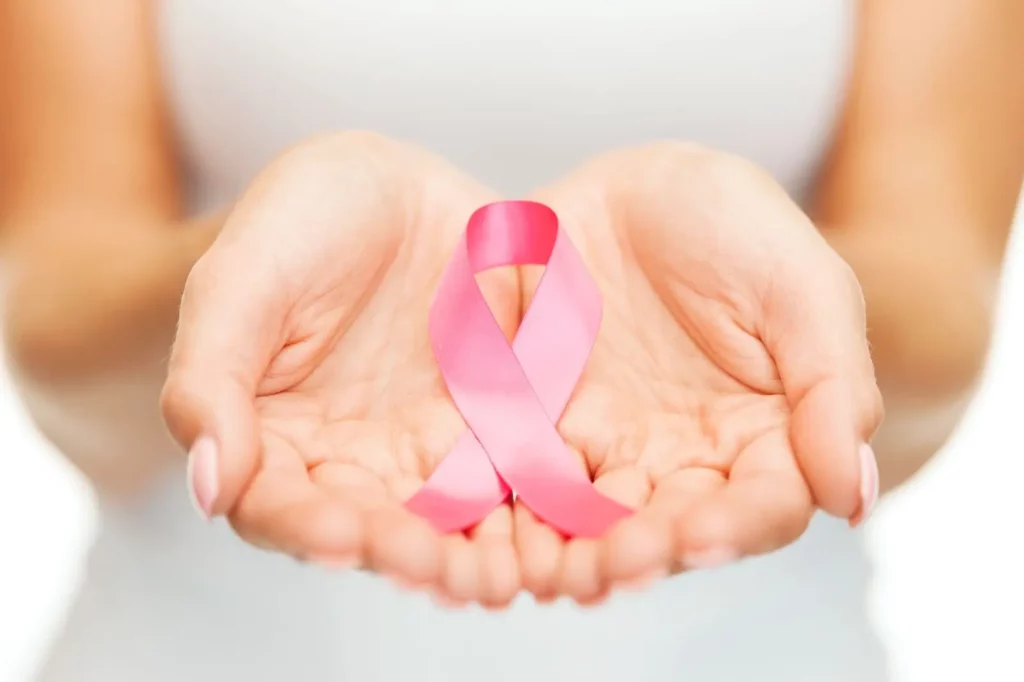In recent years, the potential therapeutic properties of CBD (cannabidiol) have sparked significant interest, particularly in cancer treatment and management.
As researchers look deeper into CBD and cancer cells, there is growing curiosity about whether CBD holds promise as a complementary therapy for those battling this formidable disease.
Find out the implications and potential benefits CBD may offer in the fight against cancer.
Understanding CBD and Cancer
Here is the current understanding of how CBD interacts with cancer cells and its implications for cancer treatment and management.
- CBD’s Antitumor Effects: Research suggests that CBD may possess antitumor properties by inhibiting the growth and spread of cancer cells, potentially offering a novel approach to cancer treatment.
- Modulation of Cancer Cell Growth: Studies indicate that CBD may influence various pathways involved in cancer cell proliferation, differentiation, and apoptosis, providing insights into its potential mechanisms of action against cancer.
- Management of Cancer Symptoms: Beyond its direct effects on cancer cells, CBD has shown promise in alleviating symptoms commonly associated with cancer and its treatment, including pain, nausea, and appetite loss, thereby improving the quality of life for cancer patients.
Research on CBD and Cancer
As interest in CBD’s potential therapeutic benefits grows, researchers have turned their attention to its effects on various types of cancer.
Breast Cancer
Studies investigating the effects of CBD on breast cancer have shown promising results. They suggest that CBD may inhibit the proliferation of breast cancer cells, induce cancer cell death, and suppress tumor growth. Additionally, CBD’s anti-inflammatory and analgesic properties may help alleviate symptoms and side effects associated with breast cancer and its treatment.
Lung Cancer
Preliminary research on CBD’s impact on lung cancer indicates that CBD may possess antitumor effects by inducing apoptosis (programmed cell death) in lung cancer cells and inhibiting their migration and invasion. Furthermore, CBD’s ability to reduce inflammation and oxidative stress may contribute to its potential therapeutic benefits in lung cancer treatment.
Prostate Cancer
Emerging evidence suggests that CBD may modulate key signaling pathways involved in prostate cancer progression, potentially inhibiting tumor growth and metastasis. Additionally, CBD’s anti-inflammatory and analgesic properties may provide relief from prostate cancer-related symptoms such as pain and urinary difficulties, improving patients’ quality of life.
Glioblastoma
Glioblastoma, a highly aggressive form of brain cancer, poses significant challenges in treatment and management. Recent studies have explored CBD’s potential as an adjunctive therapy for glioblastoma, demonstrating its ability to inhibit tumor growth, induce apoptosis in cancer cells, and enhance the efficacy of standard treatments such as chemotherapy and radiation therapy.
Can CBD help people with cancer?
The question of whether CBD can aid individuals with cancer is a topic of ongoing research and debate. While CBD shows promise in preclinical studies for its potential antitumor effects and ability to alleviate cancer-related symptoms, conclusive evidence regarding its efficacy as a standalone treatment for cancer remains limited.
However, CBD for cancer patients may be a complementary therapy to help manage symptoms such as pain, nausea, anxiety, and insomnia, often experiencing relief and improved quality of life. It’s essential for individuals considering cannabinoids for cancer pain as part of their treatment regimen to consult with their healthcare providers for a safe and appropriate use alongside conventional therapies.
CBD and Treating Cancer-Related Symptoms
CBD has garnered attention for its potential to alleviate various cancer-related symptoms, offering relief to patients undergoing cancer treatment. Studies suggest that CBD for cancer pain and inflammation associated with cancer and its treatment, mitigate chemotherapy-induced nausea and vomiting, alleviate anxiety and depression, and improve sleep quality.
Additionally, CBD’s anti-inflammatory and antioxidant properties may contribute to its potential in managing side effects and improving overall well-being in cancer patients. While further research is needed to understand CBD’s efficacy and safety in this context fully, many individuals find relief from their symptoms through the use of CBD products as part of a comprehensive cancer care plan.
Potential benefits of CBD in cancer treatment
From lessening treatment side effects to potentially inhibiting tumor growth, CBD holds considerable promise as a complementary therapy in the fight against cancer.
- Symptom Management: CBD for cancer pain is also a possible treatment, aside from other symptom management such as nausea, vomiting, and loss of appetite, enhancing patients’ overall comfort and well-being.
- Anxiety and Depression Relief: Studies suggest that CBD’s anxiolytic and antidepressant properties could help alleviate the psychological distress commonly experienced by cancer patients, improving their mental health and quality of life.
- Enhanced Treatment Response: CBD’s ability to modulate cellular signaling pathways and improve the efficacy of conventional cancer treatments such as chemotherapy and radiation therapy suggests it could improve treatment outcomes and patient survival rates.
CBD Considerations and Limitations
As CBD gains popularity as a potential adjunctive therapy in cancer treatment, it’s crucial to understand the various considerations and limitations associated with its use. From different formulations to legal constraints and possible side effects, navigating the landscape of CBD in cancer care requires careful consideration.
Formulations
CBD has unique properties and bioavailability and is available in various formulations, including oils, capsules, edibles, topicals, and more. Selecting the most appropriate formulation depends on factors such as the desired onset of effects, convenience, and individual preferences, highlighting the importance of personalized treatment approaches in integrating CBD into cancer care regimens.
Side Effects
While CBD is generally well-tolerated, it can cause side effects in some individuals, including dry mouth, diarrhea, changes in appetite, and fatigue. Additionally, CBD may interact with certain medications commonly used in cancer treatment, emphasizing the importance of consulting with healthcare providers before incorporating CBD into a cancer care plan to minimize the risk of adverse reactions and for safe and effective use.
Legal
The legal status of CBD varies by jurisdiction, with regulations governing its production, distribution, and use differing across regions. While CBD derived from hemp containing less than 0.3% THC (tetrahydrocannabinol) is legal at the federal level in many countries, the legality of CBD products may vary at the state or international level. Understanding the legal landscape surrounding CBD is essential for patients, healthcare providers, and caregivers for compliance with local laws and regulations when utilizing CBD as part of cancer treatment protocols.
CBD Safety considerations and potential side effects
While generally regarded as safe, CBD may cause adverse effects in some individuals, warranting careful attention and monitoring.
- Interaction with Medications: CBD for cancer has the potential to interact with certain medications, including blood thinners, antidepressants, and antiepileptic drugs, potentially affecting their efficacy or increasing the risk of side effects.
- Gastrointestinal Disturbances: Some individuals may experience gastrointestinal side effects such as nausea, diarrhea, or changes in appetite when using CBD products, although these effects are typically mild and temporary.
- Liver Enzyme Elevations: Research suggests that long-term use of high doses of CBD may lead to elevated liver enzymes in some individuals, highlighting the importance of regular monitoring and dose adjustment to mitigate potential risks.
Prioritizing CBD Safety and Side Effects
While CBD cancer treatment holds promise as a potential therapeutic option for various health conditions, including cancer, it’s essential to approach its use with caution and awareness of potential safety considerations and side effects.
As research continues to evolve, ongoing vigilance and communication with healthcare providers are crucial to maximizing the benefits of CBD while minimizing potential risks.
For those seeking high-quality CBD products backed by rigorous testing and a commitment to excellence, Atmos CBD offers a wide range of premium options to suit your needs. Whether you’re looking for oils, capsules, topicals, or edibles, Atmos CBD provides trusted products crafted with care and precision. It’s time to upgrade your wellness journey with Atmos CBD and experience the transformative benefits of premium CBD. Visit our locations today!










